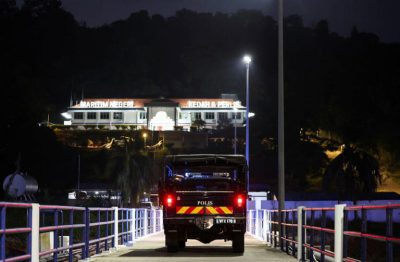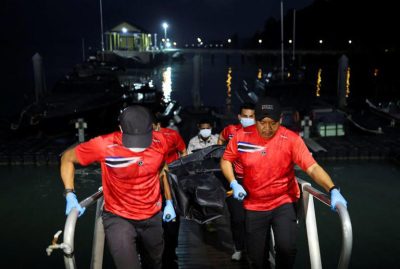Arakan News Agency
Malaysian authorities continue search operations in the Andaman Sea for dozens of missing Rohingya refugees after a boat carrying them sank last week, in a new incident highlighting the risks this minority faces while attempting to escape persecution in Myanmar.

The head of the Malaysian Maritime Agency, Romli Mustafa, confirmed that 21 bodies have been found so far—12 in Malaysia and 9 in Thailand—since the boat sank last Thursday. He noted that 13 people were rescued, and searches continue despite bad weather conditions.
He said the odds of survival were slim as passengers weren’t wearing life jackets, but suggested that some of the missing might have clung to floating objects in the sea, emphasizing the continuation of aerial and maritime searches in cooperation with the Thai side.
Authorities explained that the smaller boat, carrying about 70 people, sank near Langkawi Island, while the fate of the second boat carrying approximately 230 refugees remains unknown.
Preliminary information indicates that the boats set sail from Myanmar’s Arakan State, passing through Cox’s Bazar coast in Bangladesh, where about 1.3 million Rohingya refugees live in dire humanitarian conditions within overcrowded camps.
A refugee in Bangladesh, named Muhammad Younis, said his younger brother Muhammad Ibrahim, aged 29, was among those on the boats, affirming that he left without informing anyone, leaving behind a wife and three small children.

In the same context, Chris Lewa, Director of Arakan Project, mentioned that several boats left Cox’s Bazar in late October, noting that sea journeys to Malaysia usually take from a week to 10 days, and some boats might stop off Myanmar’s coast to pick up additional refugees.
According to data from the UNHCR, more than 5,100 Rohingya refugees have left Myanmar and Bangladesh by sea from January to early November this year, with reports of around 600 deaths or disappearances during these journeys.
Malaysia, with a Muslim majority, is a major destination for the Rohingya fleeing persecution in Myanmar, although Kuala Lumpur does not officially recognize refugee status and treats them as irregular migrants. Malaysian police announced that the survivors of the incident are being held for investigation of potential immigration violations.
Earlier, Malaysian authorities confirmed the death of at least 11 Rohingya refugees after a wooden boat carrying about 70 passengers sank near the maritime border between Thailand and Malaysia. Rescue teams continue searching for dozens missing amidst dwindling hopes of finding more survivors.
This incident reflects the dire situation of the Rohingya, who face death on sea voyages, with many similar incidents, including the death of approximately 427 Rohingya in two tragic incidents off Myanmar’s coast last May, described by the UNHCR as “the deadliest.”
Additionally, a boat sank off the coast of Teknaf last March with 50 people on board; 25 were rescued by the Bangladeshi border guard and fishermen. Also, 73 Rohingya refugees drowned in the Bay of Bengal while their boat was heading to Thailand, and dozens drowned after their boat capsized in western Myanmar last November.






















